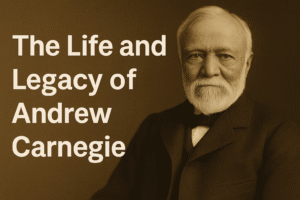These 7 beliefs silently sabotage your finances. Discover how to shift your mindset and create lasting wealth.
- Why Your Beliefs Shape Your Bank Account
- 1. Money is the Root of All Evil
- 2. I’m Just Not Good with Money
- 3. You Have to Work Hard for Every Penny
- 4. Rich People Are Selfish or Dishonest
- 5. I Can’t Save or Invest Because I Don’t Earn Enough
- 6. I’ll Be Happy When I’m Rich
- 7. I Must Do It All Myself
- How to Break Free from Toxic Money Beliefs
- Follow My Journey And Get Inspired To Transform Your Life For The Better
Why Your Beliefs Shape Your Bank Account
If you’ve ever felt stuck financially, chances are it’s not just about how much you earn—it’s about what you believe.
Your mindset can either empower you to build wealth or sabotage your efforts before you even start. Many people unknowingly carry toxic beliefs that hold them back from abundance.
Consider this: two people with the same job and salary can end up in completely different financial situations over ten years. One may build wealth and peace of mind, while the other struggles paycheck to paycheck. The difference isn’t intelligence or luck—it’s their beliefs about money.
Let’s explore 7 of the most destructive money beliefs and how you can replace them with empowering alternatives.
1. Money is the Root of All Evil
This is one of the most common and damaging beliefs. It causes guilt, shame, and sabotage whenever you start to succeed financially.
Many people pick this up from childhood or culture. You might have heard phrases like:
- “Rich people are greedy.”
- “You can’t be spiritual and wealthy.”
- “If you have money, you must have done something bad.”
These ideas are designed to keep you small.
Why it’s false:
Money itself is neutral. It’s simply a tool that amplifies who you already are. Generous people become more generous with money. Greedy people become greedier. Money doesn’t corrupt—it reveals character.
Real-life example:
Consider philanthropists like Warren Buffett or MacKenzie Scott. Their wealth has funded education, poverty alleviation, and health programs worldwide. If money were inherently evil, none of this impact would exist.
New belief:
Money is a resource that allows me to create positive change in my life and others.
2. I’m Just Not Good with Money
This belief shows up in self-talk:
- “I’m terrible at math.”
- “I don’t understand investments.”
- “I always mess things up.”
If you believe you’re bad with money, you avoid learning, avoid managing your finances, and stay stuck in the same patterns.
Why it’s false:
Financial literacy is a skill, not a talent. Just like learning to cook or drive, you can get better with practice.
Action Tip:
Start small. Read a beginner-friendly finance book like The Total Money Makeover or follow a YouTube channel that explains financial basics in simple terms.
New belief:
I am fully capable of learning how to manage and grow my money.
3. You Have to Work Hard for Every Penny
Many people internalize the idea that money only comes from endless effort and sacrifice. You must grind, struggle, and suffer to earn a living.
Why it’s false:
While hard work matters, wealth often grows through smart leverage:
- Automating savings and investments
- Creating digital products
- Building systems that generate recurring income
Example:
Consider online entrepreneurs who build courses or write eBooks. They do the hard work once and continue to earn for years.
New belief:
I deserve to be well-compensated for both my effort and my ideas.
4. Rich People Are Selfish or Dishonest
If you think wealthy people are bad, your subconscious will resist becoming one. This belief can cause you to push money away or make poor decisions that keep you broke.
Where this comes from:
Movies and media often portray the wealthy as villains—corrupt CEOs, greedy bankers, or ruthless landlords. Over time, you internalize this narrative.
Why it’s false:
While some people use wealth unethically, most successful people provide value and solve problems. That’s why they are paid well.
Example:
Sara Blakely, founder of Spanx, became a billionaire by creating a product women love. She pledged to give away half her fortune to charity.
New belief:
I can become wealthy with integrity and generosity.
5. I Can’t Save or Invest Because I Don’t Earn Enough
This belief keeps people in a cycle of scarcity—no matter how much they make. Even people earning six figures sometimes feel “there’s never enough.”
Why it’s false:
Saving and investing aren’t about the amount—it’s about the habit. Small contributions grow over time thanks to compound interest.
Example:
If you invest $50 a month at a 7% return, you’ll have nearly $60,000 after 30 years. Starting small is better than not starting at all.
Action Tip:
Use an automatic transfer to move a small percentage of your income into savings or an investment account every month.
New belief:
Every little bit I save and invest creates momentum toward financial freedom.
6. I’ll Be Happy When I’m Rich
Believing that money alone will make you fulfilled is a trap. This mindset postpones happiness to an imaginary future.
Why it’s false:
Studies consistently show that happiness levels plateau once basic needs are met. Lasting fulfillment comes from purpose, connection, and gratitude—not just wealth.
Example:
Lottery winners often experience a surge in happiness that fades within months. Meanwhile, people with strong relationships and a sense of meaning report higher long-term well-being.
New belief:
I choose to feel fulfilled and grateful now while creating financial abundance.
7. I Must Do It All Myself
This belief leads to burnout and limits your earning potential. Many people resist help because they feel it’s a sign of weakness or loss of control.
Why it’s false:
Leverage is the foundation of wealth. The most successful people build teams, seek mentors, and delegate tasks.
Example:
Entrepreneurs who hire virtual assistants or freelancers can focus on growth instead of busywork.
Action Tip:
Identify one area you can delegate or automate, even if it’s small. This frees up time and energy for what matters most.
New belief:
I grow faster when I ask for help and build a supportive network.
How to Break Free from Toxic Money Beliefs
Step 1: Awareness
Write down your recurring money thoughts. Be honest—some beliefs hide behind excuses like “I’m just being practical.”
Step 2: Challenge Your Beliefs
Ask yourself:
- Where did I learn this?
- Is it 100% true?
- Is it serving me?
Step 3: Reframe with Empowering Beliefs
Replace the old stories with affirmations and perspectives that align with abundance.
Step 4: Take Consistent Action
Action reinforces new beliefs. Start with small steps—automate savings, read a finance article weekly, or create your first side hustle.
Changing your money mindset isn’t about magical thinking—it’s about retraining your brain to support your goals. Your beliefs shape your habits, your habits shape your results, and your results shape your life.
No matter your background or current finances, you can choose to let go of scarcity thinking and step into a mindset of growth, possibility, and wealth.
Learn What I’m Using To Build Online Passive Income Streams By Clicking Here
I do not provide personal investment or financial advice and I am not a qualified licensed investment advisor. I am documenting my online investment and financial journey and what’s working for me. Click Here to read disclaimer.
Follow My Journey And Get Inspired To Transform Your Life For The Better
“I may earn commissions as an affiliate from sponsored links within this post”





